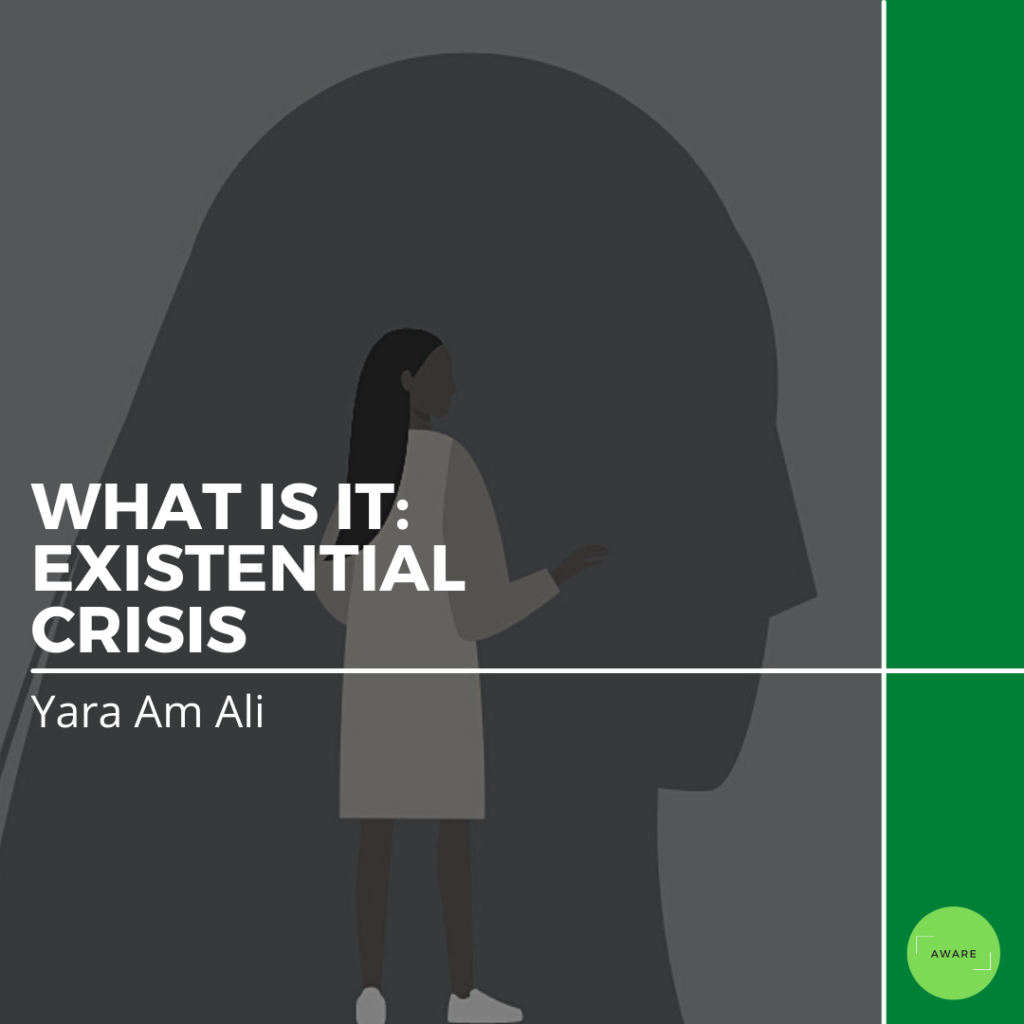By definition, an existential crisis is a collection of sentiments and concerns about the meaning and purpose of existence. These questions are difficult to answer, and we may feel stuck as a result. We often feel unclear of how to respond or which path to take, and these ideas or thoughts can have a severe influence on our life if they persist or increase. Usually, the main views associated with anxiety surrounding existentialism involve feeling that you do not have a role in life, that you exist by accident and for no reason, or that we are all going to die eventually so there is just no meaning. If these beliefs persist, they may be dangerous for the individual as engaging in erratic or impulsive behavior may increase.
We often associate existential crises with having a negative impact on our lives, but we ignore the positive consequences they may have. We may possibly reconnect with our values, meaning, purpose, as well as what we want to do with our lives as a result of a crisis.
Causes & Symptoms
An existential crisis can either be triggered by a big life event such as the death of a loved one, loss of a job, heartbreak, or facing an unimaginable challenge. Other reasons, such as being stuck in a mundane routine with a lack of change in routine or feeling unfulfilled with the current life stage, can trigger existential anxiety. Regardless of the cause, even if a crisis feels like it emerged out of the blue, your feelings are valid.
Symptoms may manifest through the following –
- Feelings of depression and/or anxiety
- General loss of motivation and drive
- Feeling like you do not know who you are
- Excessive worry
- Social isolation
- Substance abuse
Remember, if you feel like any of these symptoms are impacting your quality of life, it is okay to seek help.
How to Overcome it
Although, during a crisis, it may feel impossible and hopeless, there are several ways and things we can do to overcome these feelings and state.
- Existential Crisis Help
These following links will take you to psychologist profiles that explain their differing expertise. They all use varying degrees of existential therapy techniques, and you can always reach out for professional help if you feel you need it.
- https://bepsychologycenter.com/blog/be_team/reem-shaheen/
- https://dianablog.chmc-dubai.com/counselling-dubai-psychologist-diana-tutschek/
- https://www.gncdubai.com/doctor/aamnah-husain-counseling-psychologist-dubai/
- https://www.americancenteruae.com/clinicians/iva-vukusic/
- https://uaepsychologist.com/about-matleena-vanhanen-uae-psychologist/
- Reframe Your Thoughts
Sometimes, it is helpful to look at things from a different viewpoint. Although challenging, committing to find a bright side or one positive thing through darkness can make a difference. When a negative thought arises, notice it, let it flow, make space for it, and process it. Simply, notice. Make a note of it and see when it comes up again. Over time, you will identify a pattern or a trigger, and it will help you avoid this trigger or resolve it. Understand that thoughts are a string of words that have no power over us. If we continue to fight these thoughts and beliefs, we will be stuck in a battle with ourselves. However, if we make space and breathe it through, it will be easier to overcome.
- Do Something New
Using daily affirmations, avoiding being hard on yourself, and actively engaging in conversations about your concerns with those around you will go a long way. Go to yoga, see a friend for coffee, start a podcast, or read a book! These small habits we create for ourselves help enrich our lives step by step and may help us get out of being in our heads too much. Pursuing commitments such as volunteering, public speaking, new hobbies, or even a new job can allow you to see the good in change and help your journey.
- Practice Gratitude and Journal
Dedicating a specific journal to reflect on your life and count your blessings can allow you to see the good things in your life and what may mean something to you. Writing out three things you are grateful for each day can help you center yourself, live in the now, and find a purpose within all the struggles.
You will not always find the answers, and that is okay. Acceptance is what will allow you to go with the flow and slowly find yourself. Keep seeking questions but understand that sometimes we do not have all the answers. Katie Leikam, a licensed therapist, recommends breaking down issues into smaller answers and attempting to become pleased with obtaining the answers to the little questions that make up the greater picture in order to navigate through an existential crisis. Existential anxiety is common, and everyone has experienced it at some point in their life. You are not alone.
